- Home
- James Hadley Chase
1972 - Just a Matter of Time Page 6
1972 - Just a Matter of Time Read online
Page 6
Leaving the elevator, he crossed the small vestibule and pressed the bell push of the penthouse. As he stood waiting, he was aware that his heartbeat had accelerated and his hands had become clammy.
Sheila opened the door.
‘Good morning, Mr. Patterson . . . please come in.’
He stood there, looking at her. He scarcely recognized this tall, severe-looking woman with her glasses, her hair dressed in an unbecoming style. She was wearing a white blouse with a high collar and a black skirt. She looked immaculate, efficient, sexless and remote.
As she stood aside, Patterson, a little dazed by this unexpected transformation, walked into the lobby.
‘Is that you, Chris?’ The raucous squawk came from the living room: the door stood open. Without looking at him, Sheila moved to the door.
‘It’s Mr. Patterson,’ she said and stood aside for Patterson to pass her. Again he tried to catch her eye, but she was already walking into the room that was used as her office and he had no alternative but to walk into the living room.
Mrs. Morely-Johnson was sitting in a lounging chair in this big, elegant room with its six windows looking out onto the terrace with its mass of flowers and that overlooked the Pacific ocean and the town.
Mrs. Morely-Johnson was a bird-like woman with bright, alive blue eyes and a deeply tanned skin that was creased like old, well-worn leather. She made no attempt to conceal her age. She could have afforded the most expensive facial treatments but these she shunned. She was confident that her personality was so strong that she could ignore wrinkles and a leathery skin and yet still be attractive to young men. It wasn’t her personality that attracted them - it was her money, but this she was vain enough not to believe. She loved diamonds and her beautiful long fingers carried many flashing rings. Her thin, wrinkled wrists carried platinum and diamond bracelets. The jewels she festooned herself with every morning were often worth more than $300,000. The cataract on her eyes had worsened, but she was still able to see, although print and handwriting now floated in an out-of-focus haze. This didn’t worry her. She could still make out people’s faces and with the aid of her powerful spectacles the beauty of the young male wasn’t denied her.
She regarded Patterson, leaning forward and peering at him, as he came into the room. He was really the most attractive man she had known, she thought. His warmth, his handsomeness and his easy manner delighted her.
‘Chris!’ She extended her beautiful hand, flashing with diamonds. ‘So you have come to worry me?’
The roguish note in her voice made Patterson’s heart sink.
She was in one of those moods.
‘Just a few transfers,’ he said, seating himself beside her, but not before he had brushed her hand with his lips: a gesture he knew pleased her and something he had cultivated as part of his charm. ‘But first tell me . . . how are you?’
‘Me?’ She waved her hands and the sparkle of the diamonds made flashes of light on the ceiling. ‘I’m an old woman, Chris, but I can’t complain. I’m very well and thanks to you, I am happy with Miss Oldhill. We are already great friends. She reads beautifully, and she is so quiet and calm. This is something I need - quiet and calm. I must tell you: she bought me a present. I sent her out shopping yesterday - her clothes were . . . well, never mind. I sent her out shopping and she thought of me. She gave me the Beethoven piano trios - Kempff, Szeryng and Fournier.’ She smiled happily at Patterson. ‘Kempff! What a master! I spent most of the morning in bed listening . . . I can’t thank you enough, Chris, for finding her for me.’
‘I thought she was right for you,’ Patterson said, a little stunned that Sheila should have done this.
There was more chitchat, then he laid the transfers on the table and she signed them. Her signature was a blind scrawl, but he was used to that. Then he handed over $5,000 in $100 bills.
‘You asked for this, Mrs. Morely-Johnson.’
The old lady took the money and stowed it away in her handbag.
‘I am always needing cash and Miss Oldhill explained to me that I should have cash in my bag . . . that’s right, isn’t it, Chris?’
Patterson hesitated.
‘A cheque is safer.’ So it was Sheila who had sold this idea to the old lady. ‘Still, you have it now.’
Mrs. Morely-Johnson tapped his wrist with her long fingers.
‘You mustn’t treat me like a child.’
Patterson forced a laugh.
‘The last thing in the world I would think of doing.’ His mind suddenly uneasy. He knew he had been treating this old lady like a child. He had been in complete control of her money and now this sudden discordant note.
‘I mustn’t waste more of your time, Chris,’ Mrs. Morely-Johnson was saying. ‘I am also keeping Bromhead waiting. Life is such a rush, isn’t it? I have a lot of shopping to do.’ Again she patted Patterson’s wrist. ‘Some time next week you must dine with me. I will ask Sheila to call you.’
‘I would like that very much.’
Patterson got to his feet. He felt uneasy and frustrated. He had no excuse to see Sheila. As he went out into the lobby he found Jack Bromhead standing by the front door: immaculate in his uniform, his cockaded hat under his arm. He gave Patterson a slight bow and opened the front door for him.
‘Morning, Mr. Patterson,’ he said in his beautifully modulated voice. ‘Did you find madam well?’
Patterson, always conscious that underlings were important, gave Bromhead his warm smile.
‘She looks wonderful,’ he said, slightly raising his voice in the hope Mrs. Morely-Johnson might hear him. ‘What a great personality!’
Bromhead inclined his head, seeing through Patterson’s act and going along with it.
‘You are right, sir . . . a remarkable personality.’
Mrs. Morely-Johnson listened. What dear men these two were! she thought.
As Patterson left the elevator, feeling frustrated and not a little worried, he saw Sheila at the bookstall, buying a copy of Life. This was no accidental meeting. Bromhead had arranged it and his timing had been perfect. Listening at the door, and when he had heard Mrs. Morely-Johnson telling Patterson she had shopping to do, he had signalled to Sheila who had left the penthouse and had taken the elevator to the lobby. She had gone to the bookstall and had glanced through the magazines, watching the lighted indicator that told her the elevator was returning to the penthouse. Then when she saw the elevator was descending, she selected Life magazine and was paying for it as Patterson came out of the cage.
She turned and walked towards him, leafing through the magazine, apparently unaware that she was approaching him.
‘Sheila.’
She paused, then looked up.
‘Why . . . Chris.’ She gave him a ghost of a smile. ‘I was hoping to have a word with you.’ She moved closer to him. ‘I wanted to thank you for . . .’
‘Never mind that,’ Patterson said, his breathing uneven. ‘Let’s take the thanks as written. The old lady will be down in a few minutes. When do I see you, Sheila?’
The smoky blue eyes opened wide.
‘See me? Why . . . you’re seeing me now.’
Was she conning him? Patterson wondered. But I pay my debts. She had said that. What was this? He stared at her, trying to see any sign of promise, but the calm face and now the spectacles and the severe hairdo which he had suggested presented a baffling barrier to him, but he was sure still, if he pressed the right button, she was there to be had.
‘I would like to take you out again.’
‘That’s very kind of you.’
There was a long pause while he waited hopefully but as he realized she wasn’t adding to this impersonal statement, he said, ‘Fine. I know a very good restaurant not far from here. When can you fix it?’
‘I don’t know. I’m not free now. I’ll call you.’
‘You get a day off . . . the other one had Sundays. Suppose we make it next Sunday?’
‘It’s very nice of you, but I may hav
e things to do on my day off. I don’t know.’ She gave him the faint smile again. ‘I’ll call you. I must go. While Mrs. Morely-Johnson is out, I have a lot of things to do for her. I’ll call you.’ She moved around him, lifting her hand in a little wave of farewell, then she entered the elevator and the doors closed.
Patterson walked thoughtfully across the lobby, ignoring the doorman who saluted him and went down to his car.
While Mrs. Morely-Johnson was entertaining friends in the hotel grillroom, Sheila was eating a chicken sandwich in the penthouse office. She was occupied with Mrs. Morely-Johnson’s mail which was considerable. There were a number of begging letters to be answered. Mrs. Morely-Johnson was generous but she insisted that every applicant should be investigated before she decided to give or refuse and this meant a lot of work.
As Sheila was reaching for another letter, she heard the front door click open. Only she and Bromhead had keys to the penthouse, so she sat back, putting the letter down and waited.
Bromhead came into the room. He was wearing his uniform and the sight of him gave her confidence. This man was a professional. Not once during the brief time she had talked to him had she seen him out of character in his role as a kindly, efficient servant.
He sat down in a chair opposite Sheila’s desk.
‘You saw Patterson?’
‘Yes.’ Briefly she described the meeting and Bromhead nodded approvingly.
‘Very good . . . keep him dangling. Don’t call him until Friday evening, then tell him you have found time to go out with him.’
‘I was going to do that.’
Bromhead again nodded his approval. She was, like himself, a professional, he thought. All she needed was a little nudge, a touch on the steering wheel, and she reacted immediately in the right way.
‘He takes his women to the Star motel,’ Bromhead told her. ‘It is safe and discreet - twenty miles out of town. It’s a place where no questions are asked. Would you go with him to the motel if he asks you on Sunday?’
She shook her head.
‘Not yet . . . it’s too soon.’
‘I agree. The thing that is good about this operation is we have time. When you think the time is right, let me know.’ He looked suddenly sharply at her. ‘Don’t let him rush you off your feet. He has a lot of appeal. The stage must be set before he goes into action . . . I don’t have to tell you that.’
She stared fixedly at him.
‘No man rushes me off my feet,’ she said.
‘All right. I just mentioned it.’ He paused, then went on, ‘And Gerald?’
‘I haven’t heard from him yet, but I will. I gave him seventy dollars.’ She looked away from Bromhead. ‘He worries me.’
‘He worries me too. He is unreliable. I think he is too stupid to realize what really big money means, but he is essential. I wish he wasn’t, but without him, we put down the shutters.’ Bromhead frowned down at his square, clean fingernails. ‘What we have to be careful about is that he doesn’t get involved with another woman. You mustn’t neglect him.’
Sheila picked up a pen and made an impatient squiggle on a letter, lying on her desk.
‘You don’t have to tell me, but with Patterson, it will be difficult. I can only get away on Sundays and Sundays I must keep for Patterson.’
‘The old lady is always in bed by eleven. You could see Gerald when she has gone to sleep.’
Sheila considered this, then shook her head.
‘It’s too risky. If she woke and called me . . . it could ruin everything.’
‘You are a nurse . . . there are such things as sleeping pills.’
She looked up.
‘Is that what you think I should do?’
‘It’s a suggestion.’
Again she thought, then again she shook her head.
‘No. I can’t meet Gerald in town. We could be seen.’
Bromhead nodded. Looking ahead, planning, making decisions, taking risks, moving forward, withdrawing were now part of his life.
‘Gerald has a car. Do you think it would be too risky to meet him in some car park not far from here and he could take you somewhere?’
She lifted her shoulders.
‘Do you?’
Bromhead thought of what was involved. If Sheila and Gerald were seen together and remembered and if there was an inquiry later and someone talked the whole plan could explode, and yet he knew it was essential that she kept control not only of Patterson but also of Gerald.
‘We must take some risks, but we must minimize them as far as possible.’ He paused to think while Sheila waited, confident he would solve any problem. ‘First, the hotel staff must get to know you. They must accept you as they accept me - part of the hotel background. To do this you must make several trips a day down to the lobby, to the bookstall, to mail letters, to buy stamps. You must think up some reason to speak to the hall porter and the doorman. That I can leave to you but establish yourself so the staff regard you as one of themselves. There’s a staircase from here, reached through your bedroom. It leads down to the 19th floor. You may not have noticed the exit door. It is behind a curtain. It’s there in case of fire. The door is bolted on the inside so you can get put quickly. You must buy a blonde wig. Get yourself a drab—looking dustcoat. Leave here by the staircase, then take the elevator down from the 19th floor. After eleven o’clock the elevator goes on automatic. The night staff in the lobby won’t know if you are staying at the hotel or visiting someone. The trick with this is to show confidence. Leave the elevator and walk briskly across the lobby and out. You do the same in reverse when you return. Don’t hesitate. You won’t be noticed. Take the elevator to the 19th floor, walk up the stairs and enter your room. You need do this only twice a week. Before leaving, give the old lady a sleeping pill. How you do that is your business. Seeing Gerald twice a week should keep him happy. What do you think?’
She thought about this, then nodded.
‘Yes.’
‘All right.’ He got to his feet. ‘How do you find the old lady?’
‘She’s very easy . . . I like her.’
Bromhead paused in the open doorway.
‘Don’t get to like her too much . . . no one lasts forever.’
When he had gone, Sheila got up and went to the big window and looked down at the luxury yachts in the harbour. The sun turned the water into an oily rainbow.
Perhaps the air conditioner was making her feel cold. She shivered. Opening the terrace door she went out into the hot sunshine. Looking down at the town, the sea and the busy traffic, she still felt cold.
* * *
Gerald rolled off her with a moan of satisfaction. She knew there would be no after—play and she was thankful. Gerald was so selfish and adolescent, once satisfied, he wanted only to sleep.
She waited until his breathing became heavy, then she reached for the towel and wiped his sweat off her body. She longed to take a shower, but she didn’t want to wake him so she lay still, feeling the heat of his body as they nearly touched on the narrow, sordid bed and she stared up at the dirty white ceiling, lit by the flashing neon sign from the nightclub across the way.
The room was small and insufferably hot. Through the open window came the sounds of the waterfront: drunken voices, squeals from excited girls, the blare of transistor radios and the shuffling of feet.
This, she reminded herself, she would have to endure twice a week. Even then, she couldn’t be sure that he wouldn’t look for another woman. She had known when they had teamed up that he would present problems. He just didn’t understand nor ever would appreciate what it meant to have unlimited money – as she did and Bromhead did. His mind was too small. The only thing that bothered him was boredom. Give him enough money with which to eat, drink, run a car, go every night to some nightclub, dance with some attractive girl, have sex with her, yak with kids of his own age and he would be happy. But she was determined to make him understand; determined to mould him; determined to teach him the power of mone
y. But there were moments like this, as she lay by his side, listening to his snoring as he slept that she wondered uneasily how long she could keep him in her control. Bromhead kept saying: Time is on our side. This is a long-term operation. But it wasn’t for her. Clever as he was, Bromhead didn’t seem to realize her difficulties. There were times when she felt uneasy about Bromhead because he had more confidence in her than she had in herself. She knew she had this magic that attracted men, but to have to endure the lust of a boy like Gerald now made her skin crawl, but Gerald was the focal point of this operation. Without him, it seemed to her now that there would be no future for her and no money.
Money? Bromhead had said in his quiet unemotional voice there could be a million and a half dollars, split between the three of them.
In the flashing light of the neon sign, she looked at the blonde wig lying on the dressing table.
Bromhead was clever, she thought. His idea about the wig and the dustcoat had worked. She had had no trouble meeting Gerald in the parking lot behind the hotel and she was confident she would have no trouble returning to her room in the penthouse. Nor was she worried that Mrs. Morely-Johnson wouldn’t sleep through the night. The pill she had dropped into the glass of hot milk as the old lady settled in bed would keep her asleep until the morning.
But there was still this problem of Gerald. He had gaped at her through the Volkswagen window, not recognizing her in the blonde wig, then when she spoke, he had suddenly grinned.
‘I like you blonde, baby. You give me hot ideas.’
She was shocked with the room he had found for himself, but she was careful not to tell him so. It was on the top floor of a rooming house in a back street off the waterfront. It was cheap and he explained that with only seventy dollars a week coming in, who cares about a room? This worried her. He had such a low standard of living and he thought small. He seemed content to live like an animal: even some animals would be more fussy than he.
He had complained as he drove her to the rooming house that he was so goddamn bored.

 Come Easy, Go Easy
Come Easy, Go Easy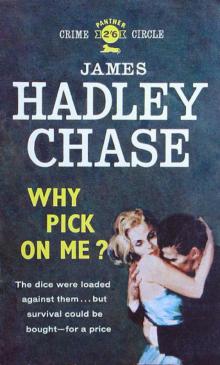 Why Pick On ME?
Why Pick On ME?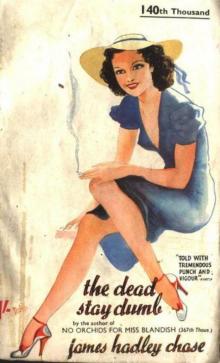 The Dead Stay Dumb
The Dead Stay Dumb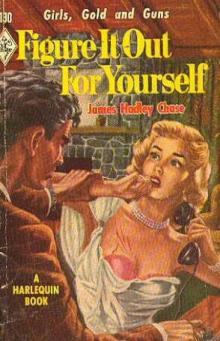 Figure it Out For Yourself
Figure it Out For Yourself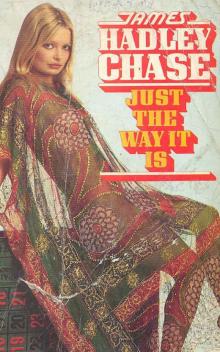 1944 - Just the Way It Is
1944 - Just the Way It Is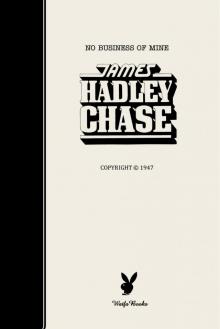 No Business Of Mine
No Business Of Mine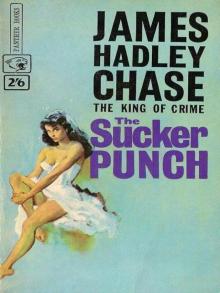 1953 - The Sucker Punch
1953 - The Sucker Punch Cade
Cade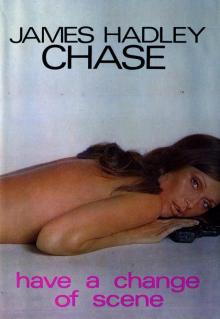 1973 - Have a Change of Scene
1973 - Have a Change of Scene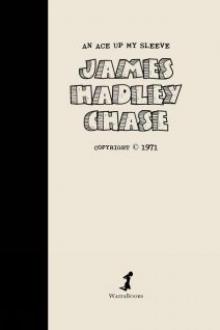 An Ace up my Sleeve
An Ace up my Sleeve 1968-An Ear to the Ground
1968-An Ear to the Ground 1950 - Figure it Out for Yourself
1950 - Figure it Out for Yourself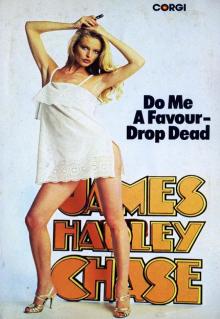 1976 - Do Me a Favour Drop Dead
1976 - Do Me a Favour Drop Dead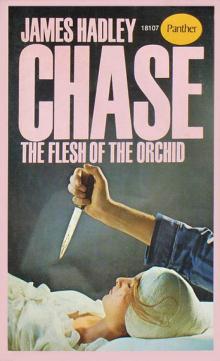 The Flesh of The Orchid
The Flesh of The Orchid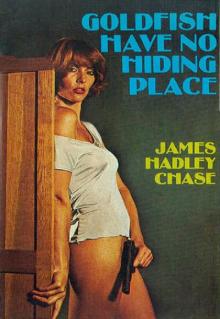 1974 - Goldfish Have No Hiding Place
1974 - Goldfish Have No Hiding Place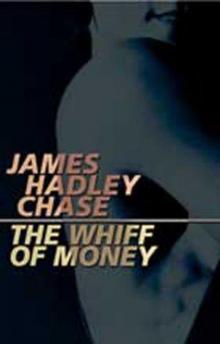 Whiff of Money
Whiff of Money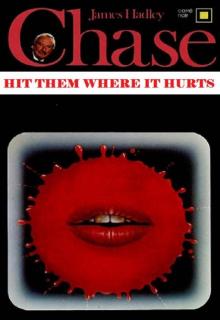 1984 - Hit Them Where it Hurts
1984 - Hit Them Where it Hurts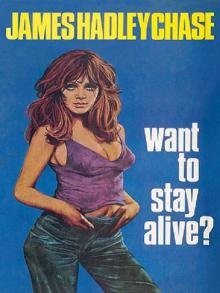 1971 - Want to Stay Alive
1971 - Want to Stay Alive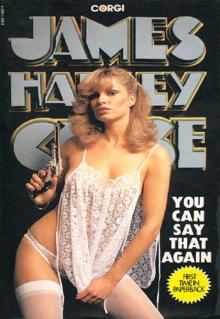 1980 - You Can Say That Again
1980 - You Can Say That Again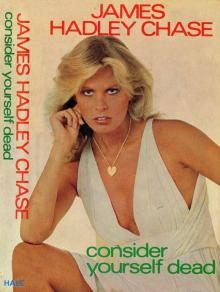 1978 - Consider Yourself Dead
1978 - Consider Yourself Dead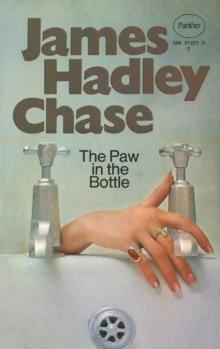 The Paw in The Bottle
The Paw in The Bottle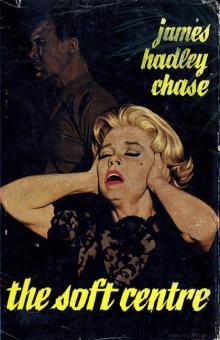 Soft Centre
Soft Centre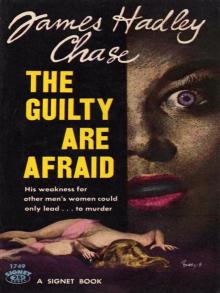 The Guilty Are Afraid
The Guilty Are Afraid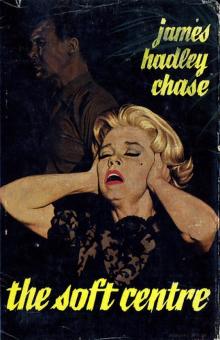 The Soft Centre
The Soft Centre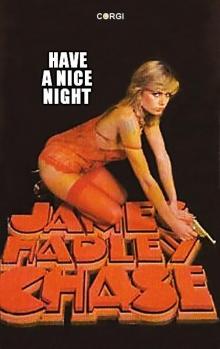 Have a Nice Night
Have a Nice Night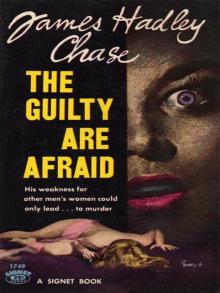 1957 - The Guilty Are Afraid
1957 - The Guilty Are Afraid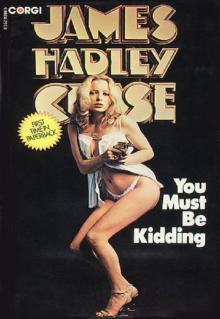 1979 - You Must Be Kidding
1979 - You Must Be Kidding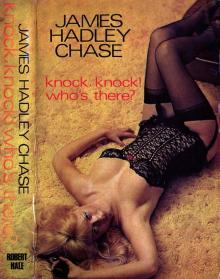 Knock, Knock! Who's There?
Knock, Knock! Who's There?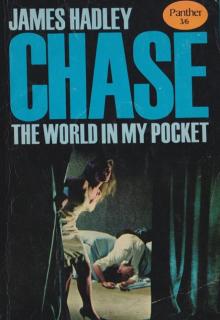 1958 - The World in My Pocket
1958 - The World in My Pocket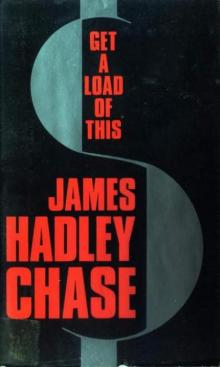 Get a Load of This
Get a Load of This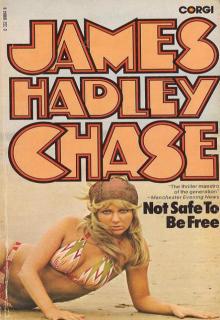 1958 - Not Safe to be Free
1958 - Not Safe to be Free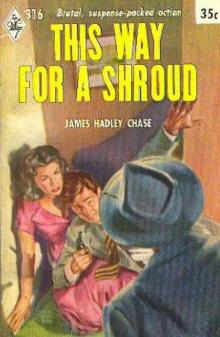 This Way for a Shroud
This Way for a Shroud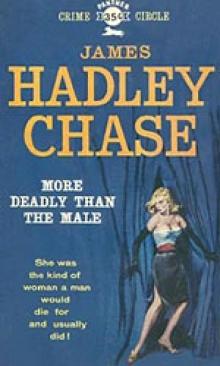 More Deadly Than the Male
More Deadly Than the Male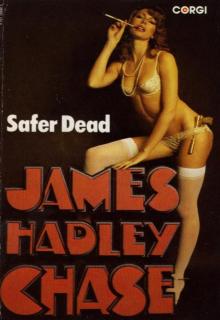 Safer Dead
Safer Dead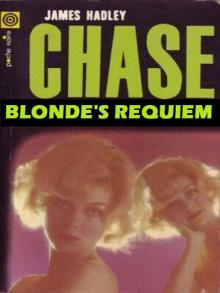 1945 - Blonde's Requiem
1945 - Blonde's Requiem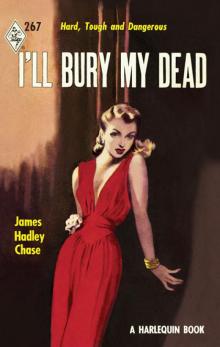 I'll Bury My Dead
I'll Bury My Dead 1975 - The Joker in the Pack
1975 - The Joker in the Pack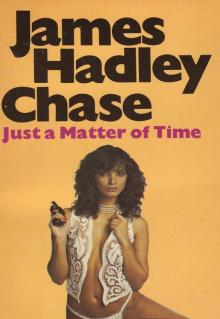 1972 - Just a Matter of Time
1972 - Just a Matter of Time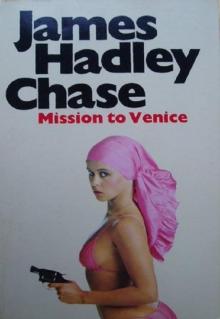 1954 - Mission to Venice
1954 - Mission to Venice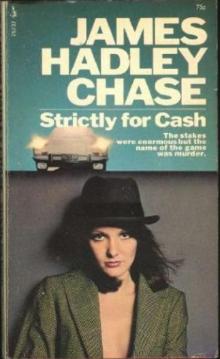 Strictly for Cash
Strictly for Cash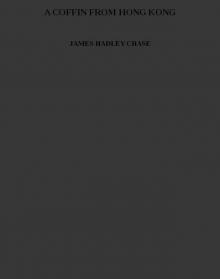 A COFFIN FROM HONG KONG
A COFFIN FROM HONG KONG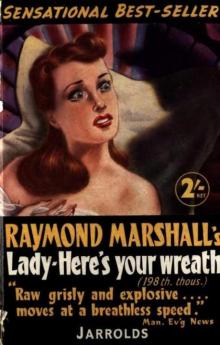 Lady—Here's Your Wreath
Lady—Here's Your Wreath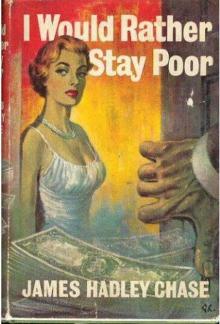 I Would Rather Stay Poor
I Would Rather Stay Poor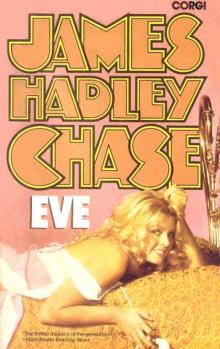 Eve
Eve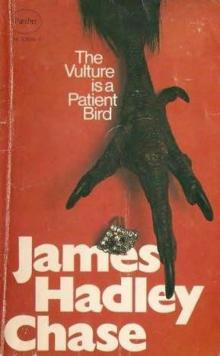 Vulture Is a Patient Bird
Vulture Is a Patient Bird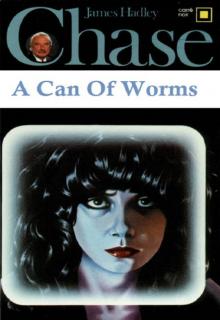 1979 - A Can of Worms
1979 - A Can of Worms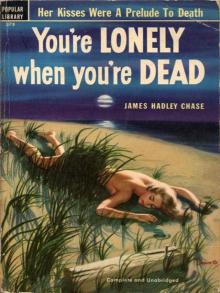 1949 - You're Lonely When You Dead
1949 - You're Lonely When You Dead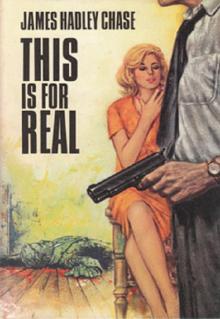 1965 - This is for Real
1965 - This is for Real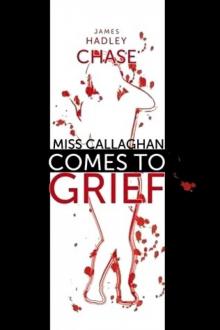 (1941) Miss Callaghan Comes To Grief
(1941) Miss Callaghan Comes To Grief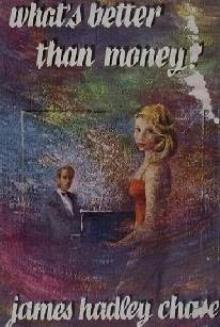 What`s Better Than Money
What`s Better Than Money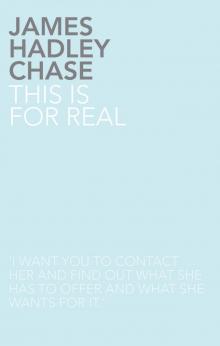 This is For Real
This is For Real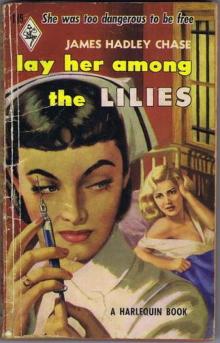 Lay Her Among the Lilies vm-2
Lay Her Among the Lilies vm-2 Knock Knock Whos There
Knock Knock Whos There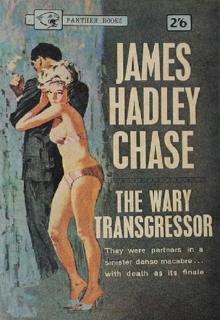 1952 - The Wary Transgressor
1952 - The Wary Transgressor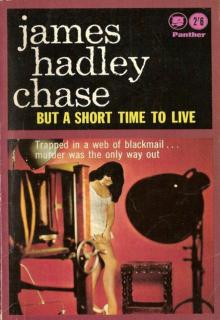 1951 - But a Short Time to Live
1951 - But a Short Time to Live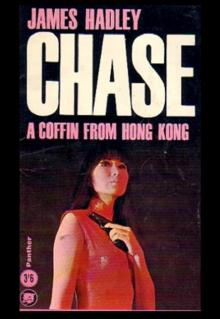 1962 - A Coffin From Hong Kong
1962 - A Coffin From Hong Kong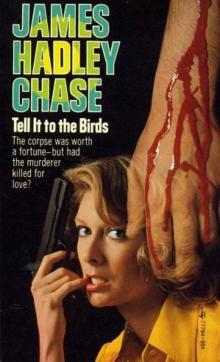 Tell It to the Birds
Tell It to the Birds Well Now, My Pretty…
Well Now, My Pretty…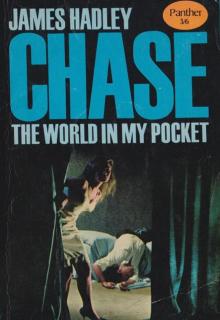 The World in My Pocket
The World in My Pocket A Lotus for Miss Quon
A Lotus for Miss Quon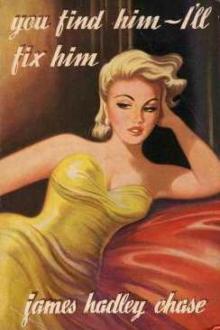 You Find Him, I'll Fix Him
You Find Him, I'll Fix Him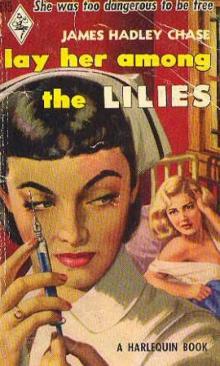 Lay Her Among The Lilies
Lay Her Among The Lilies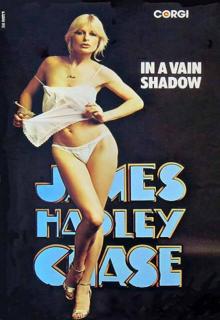 1951 - In a Vain Shadow
1951 - In a Vain Shadow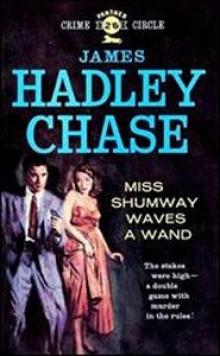 Miss Shumway Waves a Wand
Miss Shumway Waves a Wand 1953 - This Way for a Shroud
1953 - This Way for a Shroud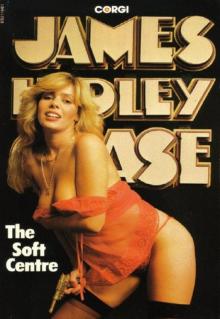 1964 - The Soft Centre
1964 - The Soft Centre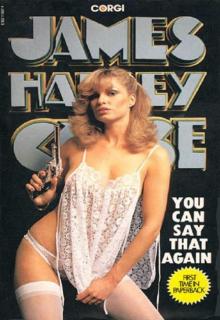 You Can Say That Again
You Can Say That Again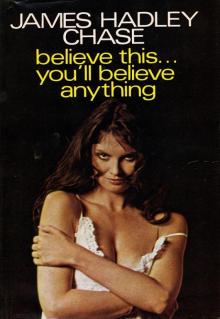 1975 - Believe This You'll Believe Anything
1975 - Believe This You'll Believe Anything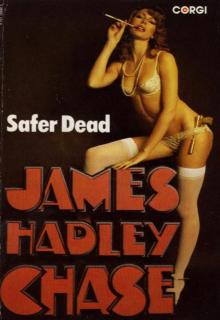 1954 - Safer Dead
1954 - Safer Dead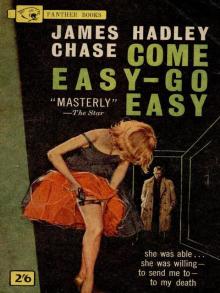 1960 - Come Easy, Go Easy
1960 - Come Easy, Go Easy Shock Treatment
Shock Treatment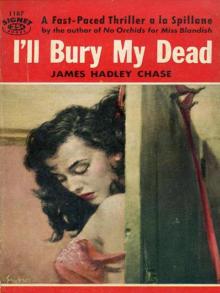 1953 - I'll Bury My Dead
1953 - I'll Bury My Dead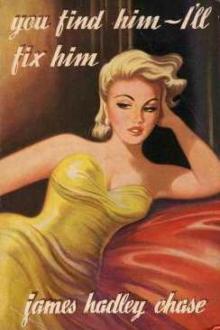 You Find Him – I'll Fix Him
You Find Him – I'll Fix Him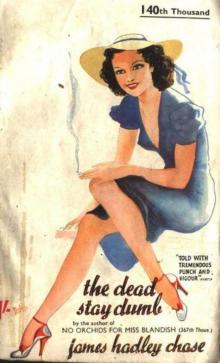 Dead Stay Dumb
Dead Stay Dumb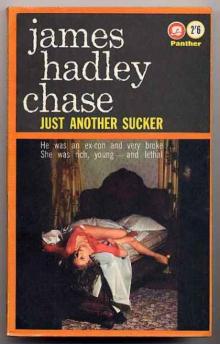 Just Another Sucker
Just Another Sucker Well Now My Pretty
Well Now My Pretty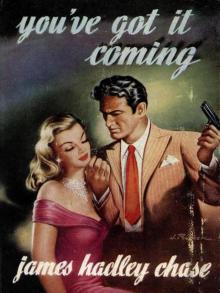 You've Got It Coming
You've Got It Coming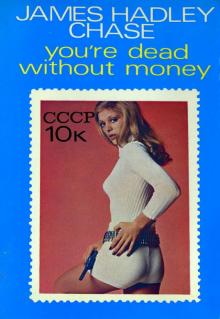 1972 - You're Dead Without Money
1972 - You're Dead Without Money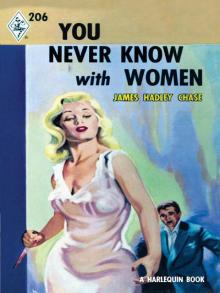 1955 - You Never Know With Women
1955 - You Never Know With Women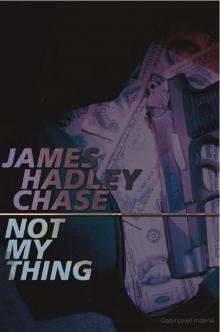 Not My Thing
Not My Thing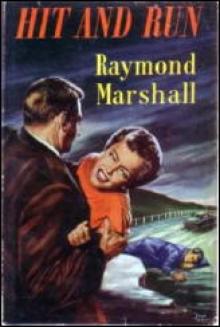 Hit and Run
Hit and Run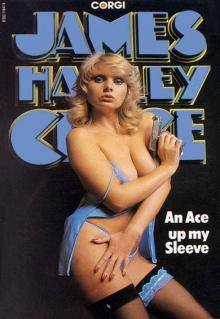 1971 - An Ace Up My Sleeve
1971 - An Ace Up My Sleeve 1970 - There's a Hippie on the Highway
1970 - There's a Hippie on the Highway 1968 - An Ear to the Ground
1968 - An Ear to the Ground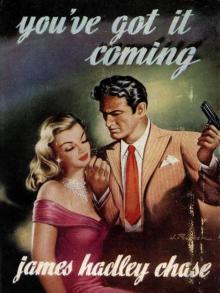 1955 - You've Got It Coming
1955 - You've Got It Coming 1963 - One Bright Summer Morning
1963 - One Bright Summer Morning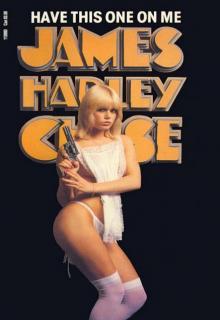 1967 - Have This One on Me
1967 - Have This One on Me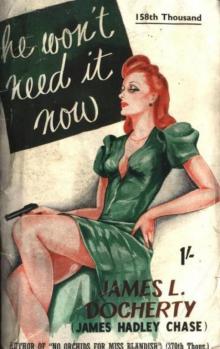 He Won't Need It Now
He Won't Need It Now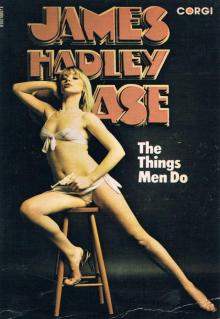 1953 - The Things Men Do
1953 - The Things Men Do Believed Violent
Believed Violent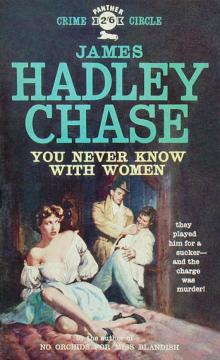 You Never Know With Women
You Never Know With Women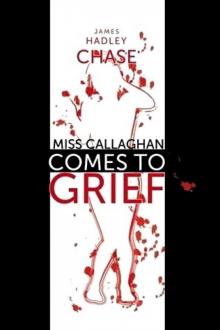 Miss Callaghan Comes to Grief
Miss Callaghan Comes to Grief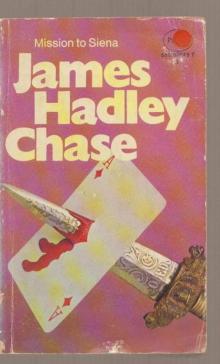 Mission to Siena
Mission to Siena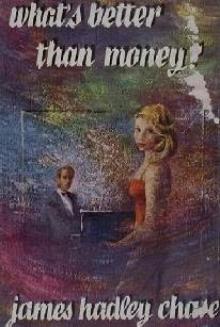 What's Better Than Money
What's Better Than Money Trusted Like The Fox
Trusted Like The Fox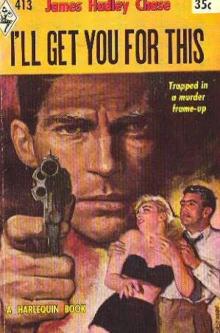 I'll Get You for This
I'll Get You for This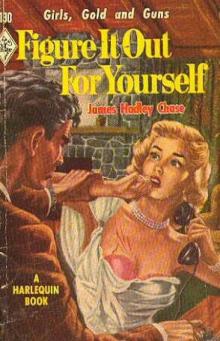 Figure It Out for Yourself vm-3
Figure It Out for Yourself vm-3 Like a Hole in the Head
Like a Hole in the Head 1977 - I Hold the Four Aces
1977 - I Hold the Four Aces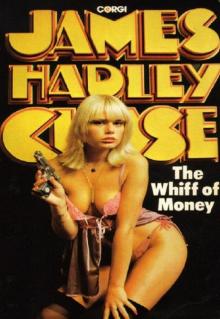 1969 - The Whiff of Money
1969 - The Whiff of Money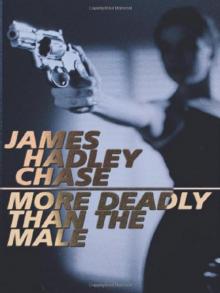 1946 - More Deadly than the Male
1946 - More Deadly than the Male 1956 - There's Always a Price Tag
1956 - There's Always a Price Tag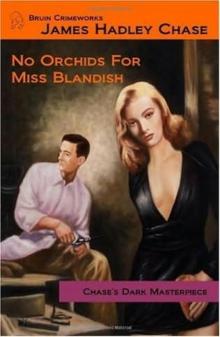 No Orchids for Miss Blandish
No Orchids for Miss Blandish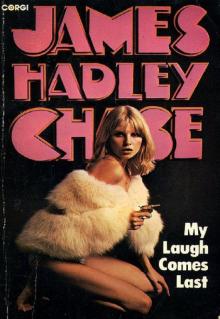 1977 - My Laugh Comes Last
1977 - My Laugh Comes Last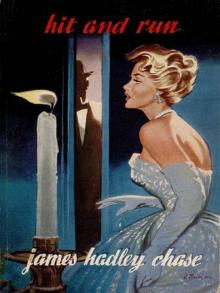 1958 - Hit and Run
1958 - Hit and Run 1981 - Hand Me a Fig Leaf
1981 - Hand Me a Fig Leaf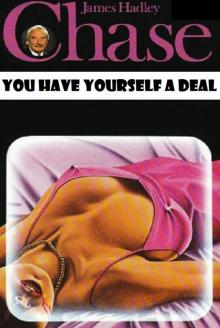 1966 - You Have Yourself a Deal
1966 - You Have Yourself a Deal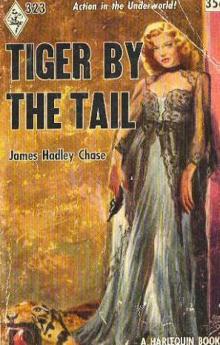 Tiger by the Tail
Tiger by the Tail